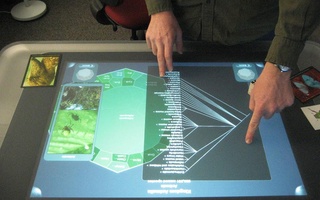THE POPULATION BOMB in 1968 predicted a severe world-wide crisis sometime during 1970-1985 because of overpopulation. But despite many famines and much suffering in the last decade, Paul Ehrlich has thus far been wrong, and few economists expect such a crisis in the next decade. His Malthusian expectations of too little food for too many people are valid; population growth--without agricultural innovations would ultimately outstrip food supply. Maybe the world squeaked by because Ehrlich's prophecies helped warn nations to limit their ranks; and maybe the world's response to Ehrlich's dire forebodings improved conditions--but probably not. On the whole his book has been accepted as being pertinent, but unrealistic.
This year Ehrlich is at it again. In Extinction: The Causes and Consequences of the Disappearance of Species, he argues that the destruction of species will spell disaster for mankind. Yet, though he again brings forth valid and enlightening points, Armageddon still doesn't seem near. Man may cause the death of other species, but the human race's sense of self-preservation will probably stop it from committing mass suicide.
Ehrlich, a professor of biological sciences at Stanford University, and his wife Anne, a biological research associate, have carefully documented their book, and it is also fascinatingly readable--an all-too-rare combination. Extinction has the abundant facts and examples of a textbook and a bibliography of more than 50 pages--yet it reads like a novel. And though the arguments linking man's fate with those of other species are weak, they are interesting and new.
But few of the Ehrlich's case histories really back up their hypothetical arguments. They call attention to the diversity of organisms: "A gram of fertile agricultural soil has yielded over 30,000 one-celled animals, 50,000 algae, 400,000 fungi, and over 2.5 billion bacteria." Yet they fail to show how man is currently destroying his own food basket. They note briefly that other civilizations, like those in the Tigris and Euphrates valleys, could not maintain their irrigation systems properly and withered away with their crops. But history, no matter how harrowing, does not always parallel the present. The potential catastrophes that they envision are simply too implausible to happen.
Suspicion of impending doom because of the elimination of species stems from the Ehrlichs' first and constantly invoked example, which, sad to say, is laughable. "Imagine that, just before you are about to board a jet plane, you see a man busily prying rivets out of its wings. As you rush in a panic back down the gangplank, he calls out, "Don't worry, I've taken a lot of rivets out already and the wing hasn't fallen off yet!" This scenario is supposed to be analagous to losing a few more species: One more might not matter, but, on the other hand, it might lead to disaster. This presumption seems ludicrous since the world has been losing species for millions of years. Human beings may have increased the pace of species elimination, yet with a few million still extant, the disappearance of more each century should hardly strain the ecosystem.
THE REAL VALUE of the book lies in its explanation of the indirect benefits of conservation. Mankind could lose valuable but as yet unknown drugs from plants, the esthetic beauty of the gnarled Bristle Cone Pines and the majestic blue whales, and the companionship of our pets. Crass, short-term harvesting of whales to make a profit or use of DDT to save time, or polluting to cut costs--all these deprive us of natural novelties which once gone can never be creat#d again.
Even if man only cared for himself and saw beasts and plants as objects to deal with, he should reconsider how he wants to exploit them. Clearing a forest to heat homes for only a year may serve many, but in the long run, that forest and the ecosystem that died with it might have been more valuable to man for quality-of-life reasons. Man should strive for more than just propagating his species; he should also improve the quality of each life. To maintain our numbers and increase them, eradication of other species would probably be necessary, but in the long run, all mankind would lose the intrinsic and extrinsic qualities of the deceased.
The Ehrlichs should have spent more time developing this theme of the esthetics of life for our kin. Photos of extinct species, like the once-most numerous bird, the passenger pigeon, and of others now vanishing would appeal to the altruistic feelings of the reader. Yet the written examples create remarkable images and inspire compassion. Too bad James G. Watt will probably never see them.
Read more in News
STUDENT ACTIVISM:Recommended Articles
-
Butterflies Lend Insights About SpeciationEarly signs of divergent evolution in Heliconius butterflies in Ecuador may reveal a missing link to understanding how species form, according to a recent study by Harvard researchers.
-
Plant Species Invade Walden PondClimate change has converted Henry David Thoreau’s beloved Walden Pond into a battle site between native and non-native plant species, and it seems as though the non-natives—particularly invasives—are emerging victorious, according to a study published by Harvard researchers last month.
-
 SEAS Group Wins National Science Foundation Grant
SEAS Group Wins National Science Foundation Grant -
Medicine May Change our GenesEvidence has been mounting for the past decade that we as a species are evolving genetically in real time, under the pressure of discernable social and historical forces.
-
Scientists Discover New Species in AustraliaA recent scientific expedition to the Cape Melville rainforest in Australia, led in part by a Harvard researcher, resulted in the discovery of three new vertebrate species. The scientists identified a golden colored skink, a leaf-tailed gecko, and a boulder-dwelling frog—all of which have been isolated in their environment for millions of years.
-
Anthropomorphism Versus Irrational FearBecause many humans do not understand animal behavior, they tend to anthropomorphize certain species, cooing at their adorable appearances, and write off others as dangerous killers, perhaps influenced by films such as Jaws and Anaconda.













